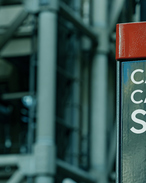This article is 18 years old. Images might not display.
Senators Jim Bunning (R-KY) and Barack Obama (D-IL) introduced the bipartisan legislation – based on the bill first introduced by Bunning and Obama last spring.
"It is a comprehensive bill that expands tax incentives, creates planning assistance, and develops Department of Defense support for the domestic CTL industry," a statement issued by Bunning said.
In the CTL process, coal is gasified, the gas is run through the Fischer-Tropsch process, and the resulting fuel is refined into products like jet and diesel fuels. The final product is cleaner than conventional fuels because most of the sulfur and nitrogen is removed during the Fischer-Tropsch process.
"CTL technology offers America the chance to capitalise on an abundant domestic resource that is found in eastern and western Kentucky and across the country. To help spread the message of how important the CTL process is for energy independence Senator Obama and I will form the Senate Coal-to-Liquid Fuel Caucus to help lead this fight," Bunning said.
"With a strong investment in CTL, America will wean itself off of foreign sources of energy, and at the same time create jobs for working families back home. CTL is a viable, environmentally friendly energy resource that will help cure America's addiction to oil."
Obama said while the US had the technology to produce the fuel, it lacked the "political will".
"Illinois Basin Coal has more untapped energy potential than the oil reserves of Saudi Arabia and Kuwait combined. Instead of enriching the Saudis, we can use these reserves to bring a renaissance for Illinois coal."
The Bill will enable the Department of Energy to provide loan guarantees for construction and direct loans for the planning and permitting of CTL plants.
Loan guarantees will encourage private investment and planning loans will help companies prepare a plant for construction, the statement said.
The legislation will also expand investment tax credits and expensing provisions to include coal-to-liquids plants, extend the Fuel Excise Tax credit, and expand the credit for equipment used to capture and sequester carbon emissions.
The tax incentives build on the loans and loan guarantees by offering tax breaks during the multiple-year construction phase and during initial production at the plant.
The Bill also gives the Department of Defense the funding and authorisation to purchase, test and integrate these fuels into the Strategic Petroleum Reserve and military fuel supplies.






















